‘Such UNESCO decision is of particular importance in conditions when countries of the Western world are trying to isolate Russia’
Experts explained what the inclusion of the KFU observatories in the World Heritage List will give
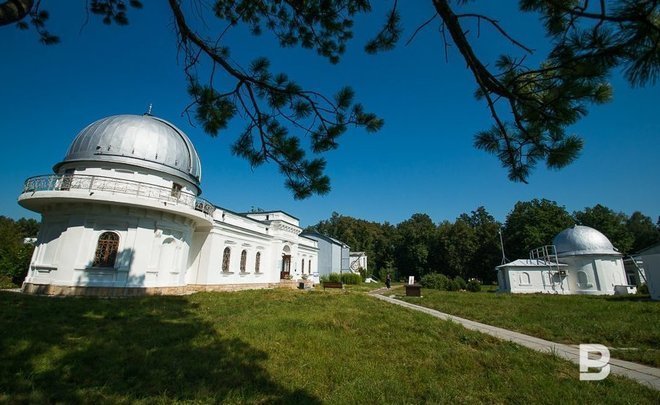
The astronomical observatories of the Kazan Federal University have been included in the UNESCO World Heritage List. They could have received this status back in 2022. The work on the collection of dossiers for submission to UNESCO began in 2019. Now the decision to include in the list was made at the 45th session of the UNESCO World Heritage Committee in Riyadh, Saudi Arabia. Thus, the observatories of the Kazan Federal University became the fourth such facility in Tatarstan and the 31st in Russia. What politicians and experts say about this event, as well as what prospects are now opening up for Tatarstan — read in the material of the publication.
“This is a victory!”
Let us remind that the Kazan Kremlin was the first in Tatarstan to be included in the UNESCO list. It happened in 2000, at the 24th session of UNESCO in Cairns (Australia). The Bolgar historical and archaeological complex was included in the UNESCO list in 2014 in Doha (Qatar). The third UNESCO site on the territory of the Republic of Tatarstan was the Assumption Monastery and the Cathedral of the island-city of Sviyazhsk, this was announced in 2017 — at the 41st session of UNESCO in Krakow (Poland).
The observatories consist of two parts: one is located in the historical centre of Kazan, the other is in a wooded suburban area to the west of the city, in Zelenodolsk. In Saudi Arabia, Tatarstan was represented by the head of the district, Mikhail Afanasyev, Minister of Culture of the republic Irada Ayupova, as well as State Duma Deputy from the region Tatiana Larionova.
“This is a victory! The Engelhardt Astronomical Observatory of Zelenodolsk district has been included in the UNESCO list. We are in Saudi Arabia, where the expanded 45th session of the UNESCO World Heritage Committee is taking place. I am happy and proud to announce that today the Engelhardt Astronomical Observatory has been recognised as a world-wide value! This is the second object in the Zelenodolsk district included in the UNESCO list," Afanasyev wrote in his Telegram channel.
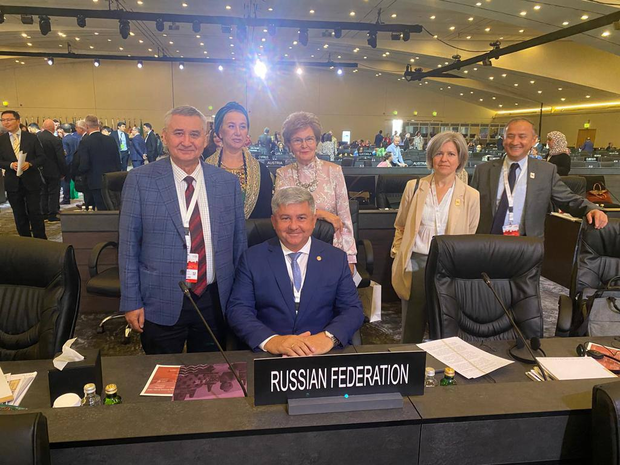
The rais of Tatarstan, Rustam Minnikhanov, also expressed congratulations on the inclusion in the UNESCO list and expressed gratitude to the first president of the republic, Mintimer Shaimiev.
“The good news has come from Saudi Arabia. An expanded session of the UNESCO Committee has been held there today. Astronomical observatories of the Kazan Federal University have been included in the World Heritage List! Congratulations! Special thanks to our Mintimer Sharipovich," the head of the region stressed.
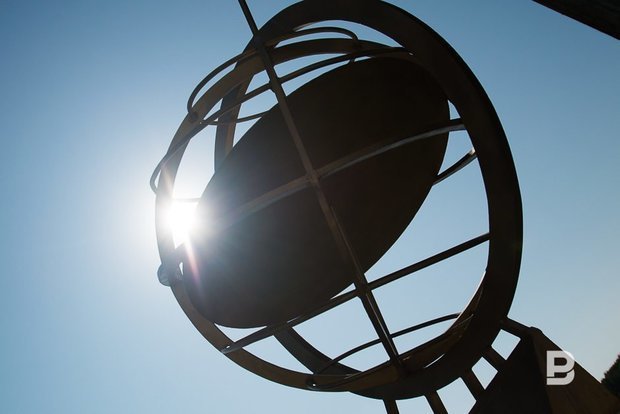
Congratulations were also expressed in the federal centre, and specifically by Minister of Culture of Russia Olga Lyubimova. She stressed that the Kazan observatories have made a huge contribution to the development of optical astronomy, astrophysics, geodesy thanks to the international scientific team of astronomers who worked at the Kazan University.
“This complex embodies the continuous connection between history, science, and culture, from innovative work in the development of astronomy, astrophysics, space geodesy in the 19the-early 21st century to the present day. Now there are 21 objects of World Cultural Heritage located on the territory of our country," Lyubimova said.
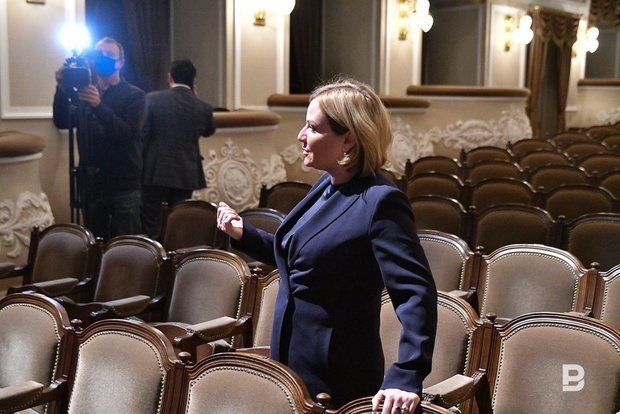
Observatory was opened in 1901
The observatory was founded by astronomer D.I. Dubyago with funds bequeathed by astronomer and public figure V.P. Engelhardt. It was equipped with equipment transferred by Engelhardt to Kazan University in 1897, previously it worked at the private Engelhardt Observatory in Dresden. The reason for the establishment of the observatory in the countryside was the inconvenience of astronomical observations in the centre of Kazan (due to the interfering lights of the big city). In 1898, the petition of D.I. Dubyago on the release of funds and the allocation of land for the construction of the observatory was satisfied, the laying of buildings took place on March 7, 1899. The observatory was opened in 1901.
In addition to the main building with a unique meridian hall, in the early years of the twentieth century, two wooden houses with sliding roofs for observation on small portable instruments, a stone tower with a rotating dome for a heliometer, wooden residential buildings, a pavilion for an astrograph, etc. were built. In 1934, the construction of a seismic basement was started. On the territory of the observatory, there is a mound with a chapel, in which the first director D.I. Dubyago is buried.
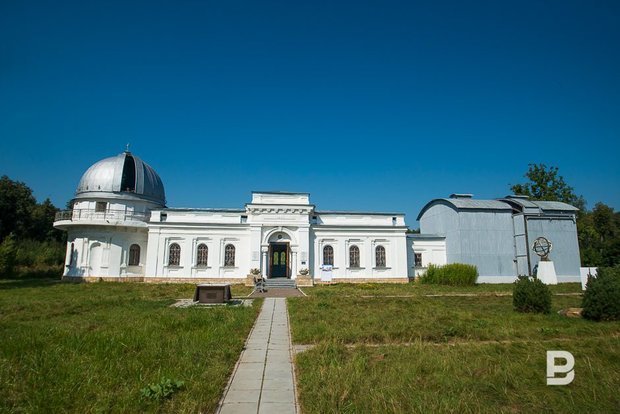
The observatory survived the Civil War and in the 20th-early 21st centuries systematically developed, acquired new equipment, becoming one of the leading centres of Russian astronomical science. In June 2013, the grand opening of the Kazan Federal University Planetarium, built on the basis of the V.P. Engelhardt Observatory, took place.
Seven objects of the observatory are protected by the state as architectural monuments: the main and administrative buildings, the telescope pavilion, the heliometer, the southern world tomb and others.
“Russia can no longer be closed, the world is becoming smarter and more vigilant”
The decision to include the observatory complex in the UNESCO list for Realnoe Vremya was commented by the rector of the Institute for the Culture of Peace (UNESCO), President of the International Humanitarian Academy “Europe — Asia” Engel Tagirov. He believes that the decision to include the KFU observatory complexes in the UNESCO list is not just an event, it has historical significance. The professor recalled, thus, now Tatarstan already has four sites on the UNESCO list. According to Tagirov, on the one hand, this means international recognition, and on the other hand, it says that the world is increasingly divided and Kazan is becoming a special place of worship, the second or third Mecca for spiritual prayer, purification of conscience and enrichment of the mind.
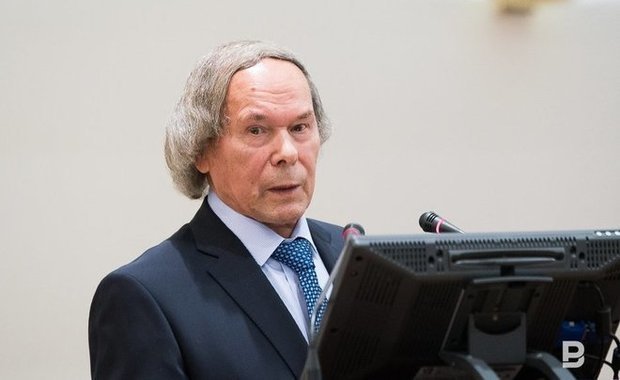
“This event still needs to be digested, because in Tatarstan alone there are four world historical and cultural sites protected by UNESCO, there is no such thing anywhere. This event should be included in educational programs, textbooks. And these objects should become a place of worship, a place of prayer for those who believe and those who do not believe. The objects included in the list should become a tool for educating the younger generation. The patronage of UNESCO is a guide, our guide in the world, we should not only be proud of it, but also be able to use such an advantage," said the Doctor of Historical Sciences.
Tagirov stressed that observatories are important and valuable, scientists and tourists can come here, the road of tourism should last until them. He believes: “The inclusion of observatories in the list suggests that we are becoming smarter by learning about the world, the cosmos, the universe with the help of observatories. This is of particular importance for the younger generation. Observatories should be used as a resource for enlightenment, enrichment and spiritual uplift.”
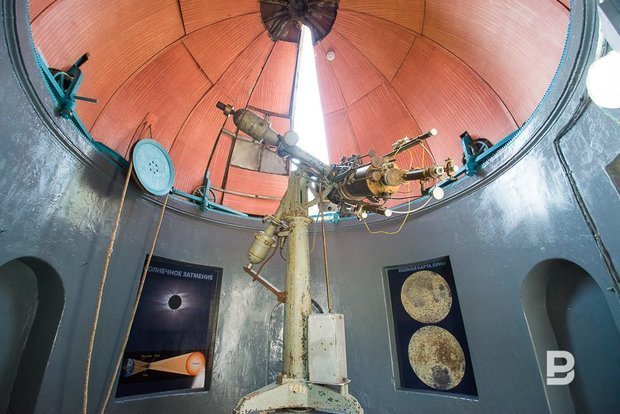
“Such a decision by UNESCO is of particular importance in conditions when countries of the Western world are trying to close Russia. But observatories do not know these boundaries, they break them, no matter who builds them. These facilities provide an opportunity for a global vision of the world, whether officials from the UN want it or not. They push the boundaries of world knowledge, break the goals and objectives of the sanctions policy of the West. Now we can independently contact anywhere in the world, send a message to space and expand our international relations through this complex," the expert is sure.
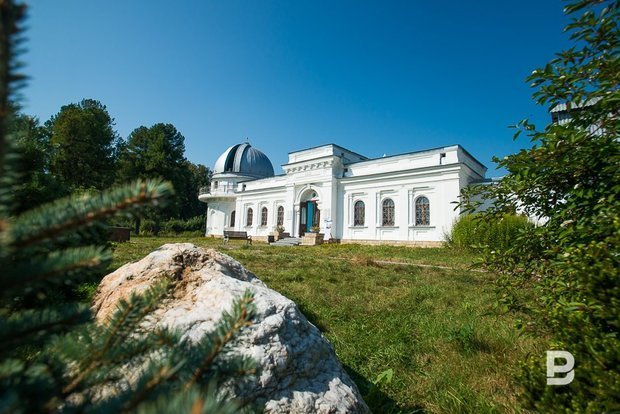
The interlocutor of the publication added that the entry of observatories into the international list will expand the tourism industry and international relations, Tatarstan is no longer bound hand and foot by sanctions. According to Tagirov, the world is becoming smarter and more vigilant.
“Russia can no longer be closed, the world is becoming smarter and more vigilant. Obtaining UNESCO status is a sign that the world will know itself, the world will be fuller and more effective," the professor concluded.
“Attention to this topic should be used to create new routes and to perpetuate the memory of our great astronomers”
As the guide Mark Shishkin says, Tatarstan is used to evaluating cultural and historical heritage as a potential that works for the benefit of our republic. Thanks to this heritage, tourism in the region has become one of the most dynamically developing industries in recent years, the republic has become the most important point of domestic tourism.
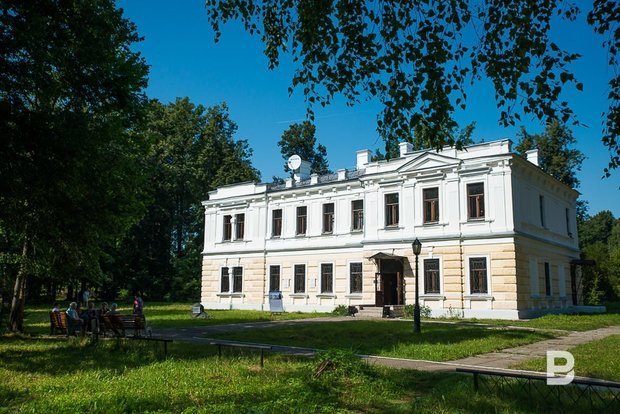
“But it turns out that the work that is being done in Tatarstan has an important effect for the entire Russian Federation, and not only for the tourism sector. In difficult international conditions, when the “abolition of Russia” touched areas very far from politics, UNESCO's decision was a breakthrough at the diplomatic level. I think that attention to this topic should be used to create new routes and to perpetuate the memory of our great astronomers, such as one of the discoverers of Antarctica, Ivan Mikhailovich Simonov. Popularisation of science can become the content of many interesting tourist programmes for both children and adults. You come to Tatarstan, and you go on a journey to the stars and the mysteries of the universe. If the international community evaluates us in this way, then we should look at our capabilities as widely as possible, forming new meanings for our audience," Shishkin is convinced.
“Future generations will see our astronomical observatory and will be able to carry out the most interesting research”
In a conversation with Realnoe Vremya, Professor of the Department of Computational Physics and Modelling of Physical Processes of the KFU Yury Nefediev said that all UNESCO sites that are included in the list of protected heritage go through a long time path. Because it is necessary not only to bring objects to the state that allows them to be included, but also it is necessary to solve issues related directly to the parameters that must be answered for inclusion in the list.
“The inclusion of observatories in the UNESCO list began back in 2005, when I participated in a meeting in Moscow with the organisation's experts, and directions were outlined there that would allow the objects to enter there. Then, in 2009, a powerful UNESCO conference was held in the KFU, the Year of Astronomy was declared by the UN, and the Kazan Declaration on Space Heritage was adopted here. And it was repeatedly indicated that our objects are worthy of entry into the protected list. And later the movements went further, UNESCO Secretary General Irina Bokova visited our observatory in 2016, there were many different experts here. As a result, thanks to the support of Mintimer Shaimiev and the Vozrozhdenie Foundation, an excellent result was obtained. Although for several years we were only on the preliminary list of inclusion in UNESCO, but nevertheless the result was obtained," Nefediev said.
As an advantage of including observatories in the UNESCO list, the professor highlighted the fact that, despite any external influences, a change of leadership, and so on, these objects will continue to exist.
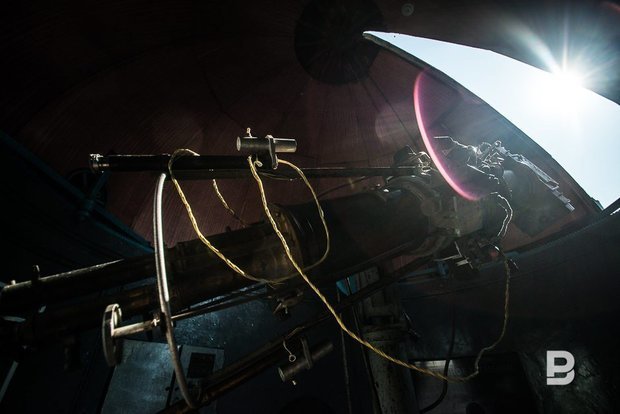
“I considered my main mission, since I was born in an astronomical observatory, my mother and father were professors of it, a crater on the surface of the Moon is named after my father. I had a family need for our observatory to be preserved for centuries. I believe that we will not be there, but young people, future generations will see our astronomical observatory and will be able to carry out the most interesting research. And they will be able to visit the object as tourists, many schoolchildren come here who believe that this is not just a trip, but a whole trip to the outer world," commented Yury Nefediev.